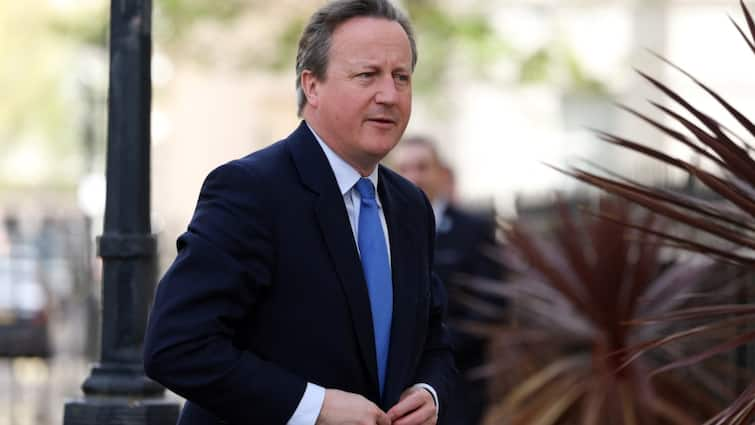Almost a year after the Manipur violence erupted, the issue was debated at a meeting in the UK’s House of Lords, when Lord Indrajit Singh raised questions regarding the religious freedom in India and the current situation in Manipur.
While highlighting the various instances of religious intolerance and violence in India, Lord Indrajit Singh questioned: “India is a member of the Commonwealth and shouldn’t freedom of belief be at the forefront?”
Former Prime Minister and Foreign Secretary of the UK, David Cameron answered to the questions pertaining religious freedom in India and the current situation in Manipur saying, “The points that he made about the importance of religious tolerance and freedom of religious belief in India are important. Of course, there have been occasions where we raised these issues with the Indian government. I think that should continue to be the case. “
“In the case of Manipur, it is right to say that we should not downplay the religious aspects of some of this strife. Sometimes, it is (the clashes) communal, tribal or ethnic, but in many cases, there is a religious part of it, and we should be clear about that,” Cameron added.
He also referred to a report by David Campanale, which highlights the destruction of churches among both the hill tribes and valley dwellers in Manipur.
Previously, the Manipur violence issue was also raised in the House of Commons by the Rishi Sunak’s special envoy for freedom of religion or belief MP Fiona in July and September last year.
What is the Manipur Violence?
Violence in Manipur began following the violent clashes which broke out in the northeastern state of Manipur after a ‘Tribal Solidarity March,’ organised on May 3 in the Churachandpur district. The march was aimed at protest against the Meitei community’s demand, demanding Scheduled Tribe status.
During the march, an armed mob attacked the Meiti community’s people which triggered retaliatory attacks in the valley, escalating the violence further throughout the state.
The violence led to more than 160 deaths and several people getting injured.
Kukis are one the several hill tribes in India and fall under the ethnic groups that inhabit Assam, Tripura, Nagaland, Mizoram, Meghalaya, Manipur, and Nagaland.
Meitis are the dominant ethnic majority in Manipur, who are predominantly Hindus and mostly inhabit the Imphal Valley region. Meitis also hold a significant population in other seven northeastern states.
Although both the groups have different religions, the present issue is reportedly centred around land rights and reservation.
The conflict between them is the extension of hills-versus-plains conflict, which can be witnessed in various other places in the northeast.
But, the May violence started in Manipur after the All Tribal Student Union Manipur (ATSUM) organised the ‘Tribal Solidarity March’ in Churachandpur district against the Meitei demand for Scheduled Tribe status.
Nagas, Zomis, and Kukis who comprise around 40 percent of the state’s population are some of the tribal groups who were involved in organising the march.


